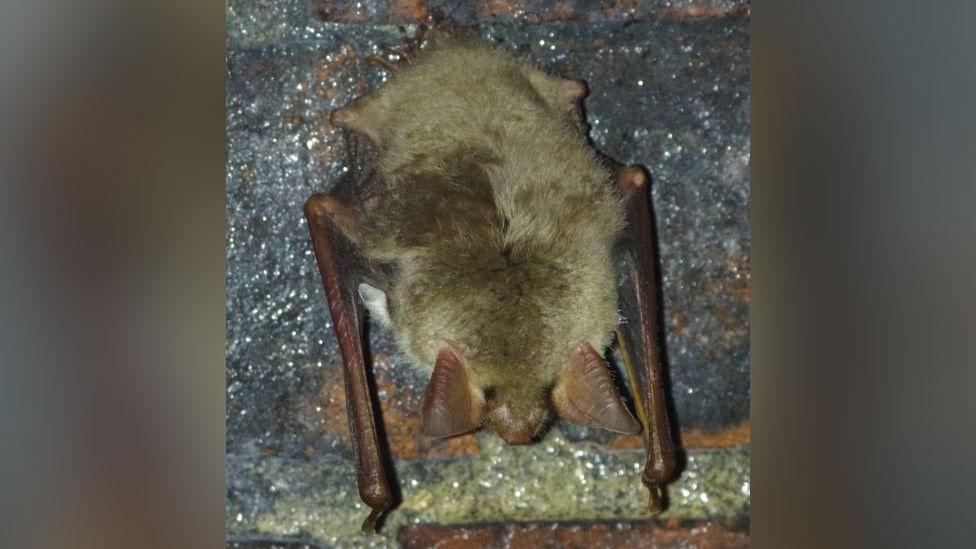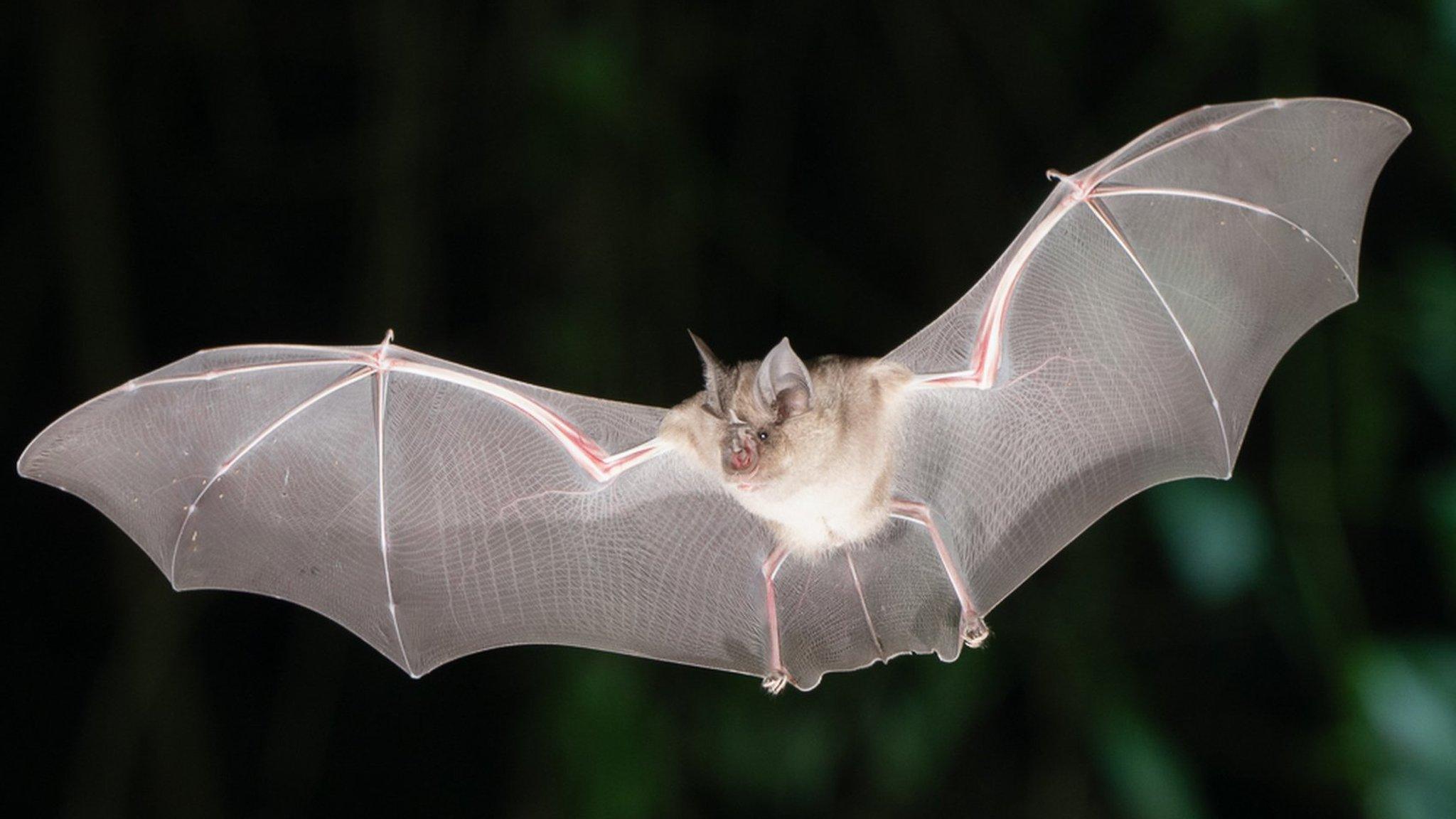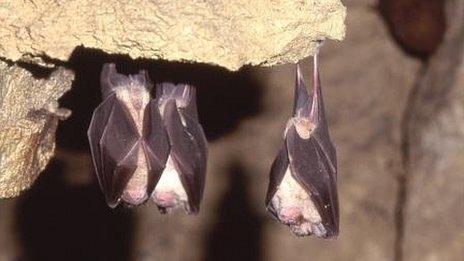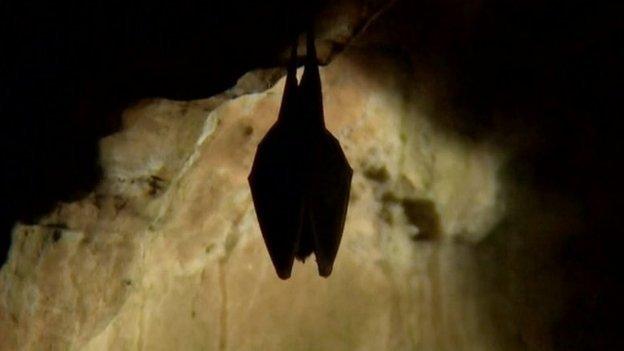Bat thought extinct in UK found in West Sussex rail tunnel
- Published

This is the second greater mouse-eared bat to be discovered on British soil since it was declared extinct in 1992
A bat which was thought to be extinct in the UK has been found hibernating in a disused railway tunnel.
In 1992, the greater mouse-eared was declared extinct in the UK, but in 2002 a single male was found in a network of tunnels in West Sussex, where it has been known to hibernate for the last 20 years.
A second bat was found in those same tunnels earlier in January.
The Sussex Bat Group said the find was a "hugely important discovery".
"This demonstrates the importance of regular monitoring of bat colonies. We could have missed this highly significant find of the second greater mouse-eared bat in Britain," group spokesperson Sheila Wright said.
"It also shows how important it is to safeguard these hibernation sites for bats."
The discovery was made during this year's National Bat Monitoring Programme, which Ms Wright said was vital to mammal conservation efforts, required due to the threat from anthropological pressures such as roost loss, habitat loss and fragmentation.
It is believed that the newly found greater mouse-eared bat was a vagrant that had crossed the channel from France, where there is an established population, and took up residence in Britain.

Facts about greater mouse-eared bats:
They are the largest of the all the British bats in terms of size
Their habitats tend to include deciduous woodlands, meadows and pastures
The scientific name for the greater mouse-eared bat is myotis myotis
Their diet consists of large beetles, caterpillars, maybugs and crickets
The species hibernates in tunnels and caves
Source: Mammal Society

Dr Stephanie Murphy, of the Sussex Bat Group, said: "There are now many questions for us to answer. Is there already a small pioneer population of greater mouse-eared bats recolonising Sussex and we just don't know where they are breeding?
"Or as result of climate change and the hottest summers on record in the UK, are we getting greater mouse-eared bats just beginning to move over from mainland Europe to settle in the UK?"

Follow BBC South East on Facebook, external, on Twitter, external, and on Instagram, external. Send your story ideas to southeasttoday@bbc.co.uk.
Related topics
- Published12 January 2022

- Published25 January 2018

- Published7 October 2015
